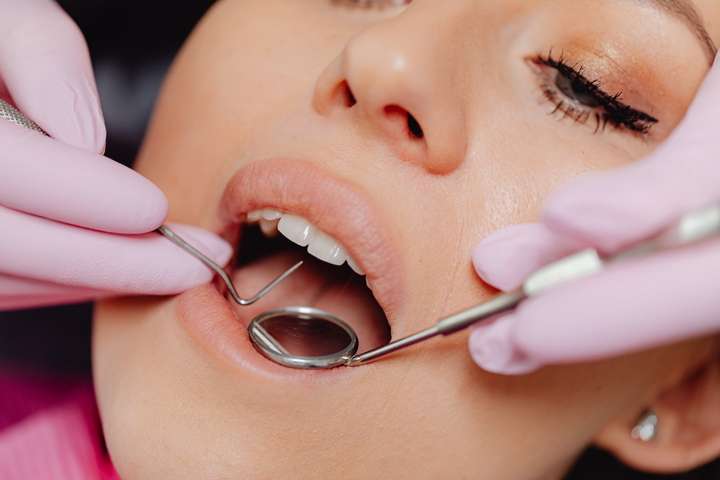The word “surgery” alone can make some folks squirm a bit, especially when it’s your mouth on the line. Dental fears are normal, and the idea of anything more involved than cleaning can bring on waves of worry. But here’s the thing: oral surgery isn’t the fear-inducing ordeal it might seem. It’s a field of dentistry that helps improve lives, sometimes in dramatic ways.

From familiar situations like getting your wisdom teeth out to more advanced procedures like jaw surgery or getting dental implants, there’s a lot that falls under the umbrella of oral surgery. Fortunately, techniques and pain management have advanced so much that these procedures are way smoother than they used to be.
What is Oral Surgery?
Let’s start by busting a common misconception: oral surgery isn’t some mysterious dental procedure. It’s a branch of dentistry specializing in fixing problems within your mouth, jaw, and even parts of your face. It goes beyond the regular checkups and fillings your general dentist handles. Many of us picture oral surgery as mostly tooth extractions, but it’s a much broader field than that.
Here’s a breakdown of some of the most common oral surgery procedures:
- Tooth extraction: This covers removing teeth that won’t budge on their own—think stubborn wisdom teeth, super decayed teeth, or ones causing overcrowding issues.
- Dental Implants: These are like high-tech artificial tooth roots placed in the jawbone. If you’re missing teeth, implants are rock-solid foundations for new crowns, bridges, or even dentures.
- Jaw surgery: This might be done to fix alignment problems that make chewing or speaking difficult, or to rebuild the jaw after an injury or health problem.
- Treatment of oral cancers: Oral surgeons play a vital role in early detection, taking biopsies, and sometimes surgically treating these types of cancers.
- Other procedures: There’s a whole range of stuff here, from treating serious infections in the face, to bone grafts that help make implants possible, and even helping orthodontists by uncovering teeth that just won’t come in on their own.
Why Might Someone Need Oral Surgery
Oral surgery often sounds like a last resort, but there are loads of situations where it’s the smartest solution (and sometimes the only solution) to a problem. Here are a few common reasons why it might be the right path for you:
- Serious tooth issues: Sometimes a tooth is so decayed or damaged that your regular dentist just can’t save it, or if an infection gets too advanced. An oral surgeon can step in and safely extract the tooth.
- Problem wisdom teeth: Wisdom teeth love to grow sideways, stay impacted, or cause infections. An oral surgeon can get them out before they cause more trouble.
- Jaw problems: Whether your jaw is misaligned (making biting and chewing a chore), or if you’ve had a serious injury, oral surgery can offer solutions to restore proper form and function.
- Sleep apnea: This is a serious issue, and sometimes oral surgery helps treat underlying structural problems contributing to obstructed breathing during sleep.
- Getting ready for dentures or implants: For comfortable and stable dentures, sometimes the gums or jaw need a bit of preparation. Implants need a solid foundation too, so bone grafts might be part of the picture.
The Oral Surgery Process
While every procedure is a little different, and your experience will be customized to your needs, there’s generally a roadmap oral surgeons follow. Here’s the basic flow:
- Meet your surgeon: You won’t be rushed into surgery. During a consultation, you’ll discuss your health history, concerns, and what kind of problem needs solving. The surgeon examines your mouth, takes X-rays if needed, and goes over all your options with you, including risks and benefits.
- Anesthesia talk: This is where you’ll sort out how to stay comfortable during the procedure. Some surgeries just need local numbing, others work best with sedation, and sometimes general anesthesia is the way to go.
- The procedure: The big day! But remember, oral surgeons are highly skilled—this is their specialty. They’re focused on your safety and making your experience as easy as possible. They may also recommend that you need dental implants if any of your teeth are broken.
- Healing up: You’ll get clear instructions on aftercare, managing discomfort, what to eat, and any follow-up visits. Most procedures have a bit of downtime, but following those instructions is key to a smooth recovery.
Where to Find a Qualified Oral Surgeon
Not just any dentist can whip out a pair of surgical pliers—finding the right surgeon for you is important. Here’s how to narrow down your search:
- Referrals: Your regular dentist is likely plugged into their community and might have awesome recommendations for specialists they trust. Word-of-mouth from friends or family who’ve had procedures done is also valuable.
- Check those credentials: Make sure the surgeon is board-certified and has the appropriate training. Experience matters too, especially with more complex cases.
- Ask around (especially if you have insurance): Some insurance plans work best with specific providers. It’s a bummer to find the perfect surgeon only to realize they’re not in your network.
Conclusion
Though oral surgery might feel a little intimidating at first, remember it’s often the solution that opens the door to better oral health and overall well-being. Whether it’s getting rid of a problem tooth, fixing your bite, or giving you a smile back with implants—sometimes a little surgical intervention is the best medicine.





